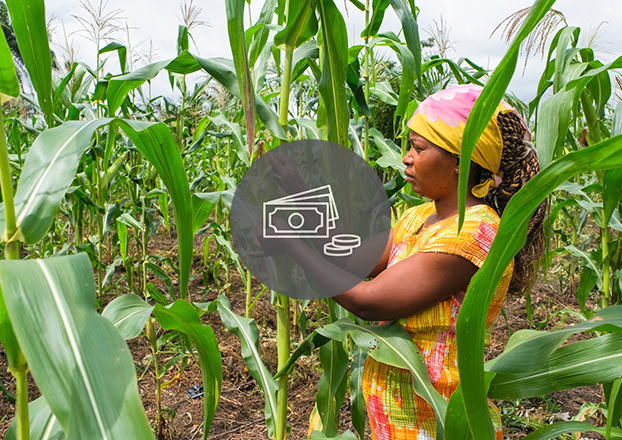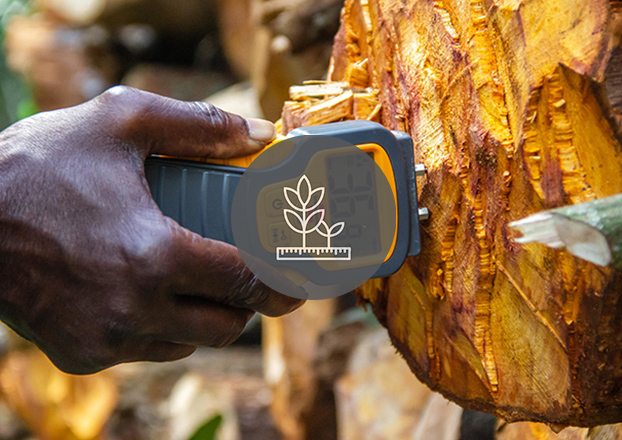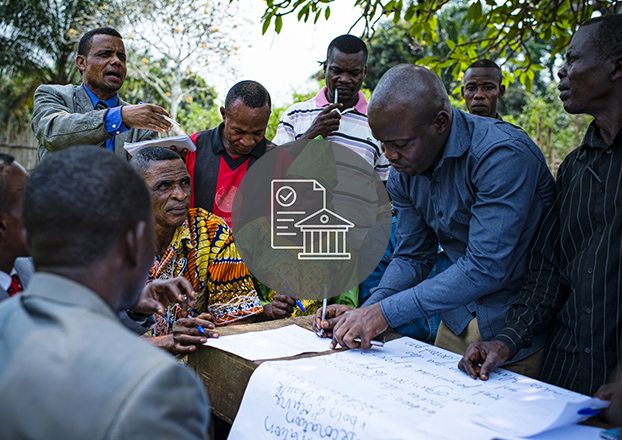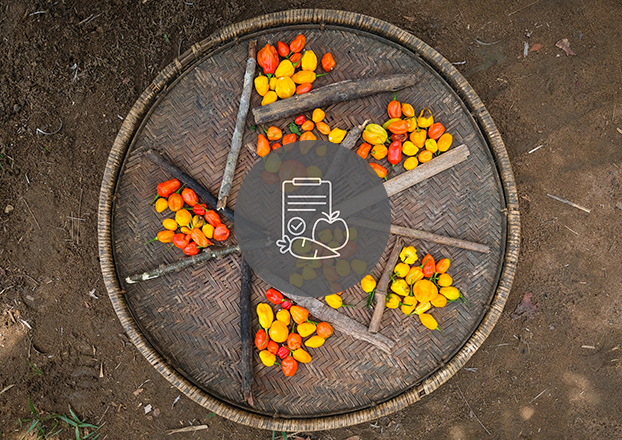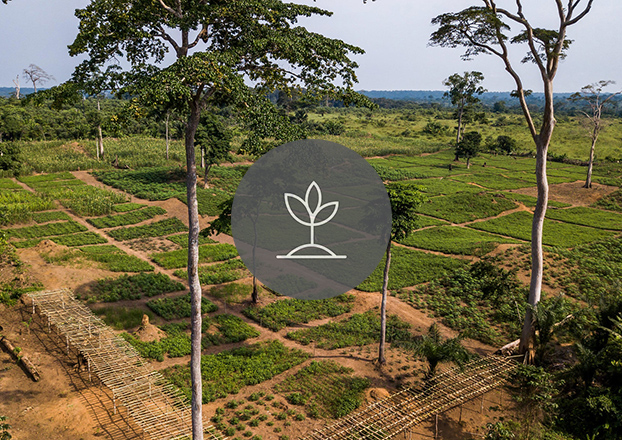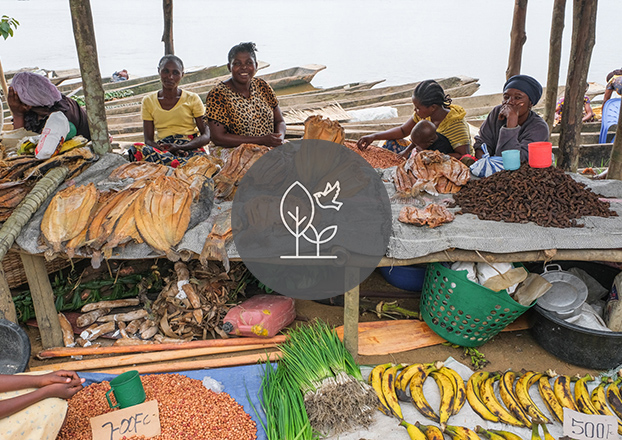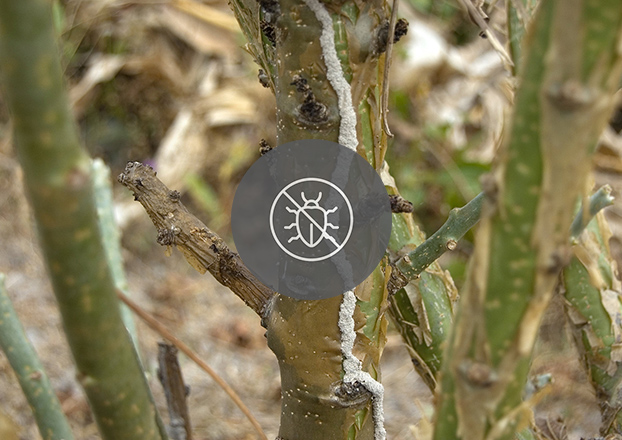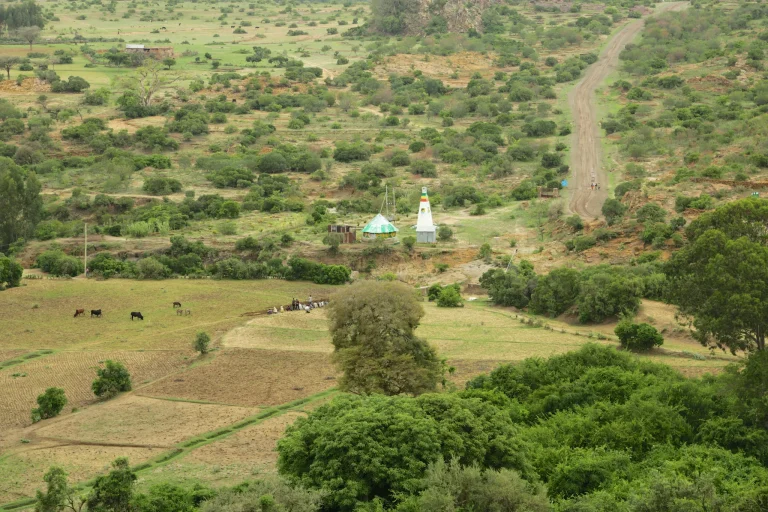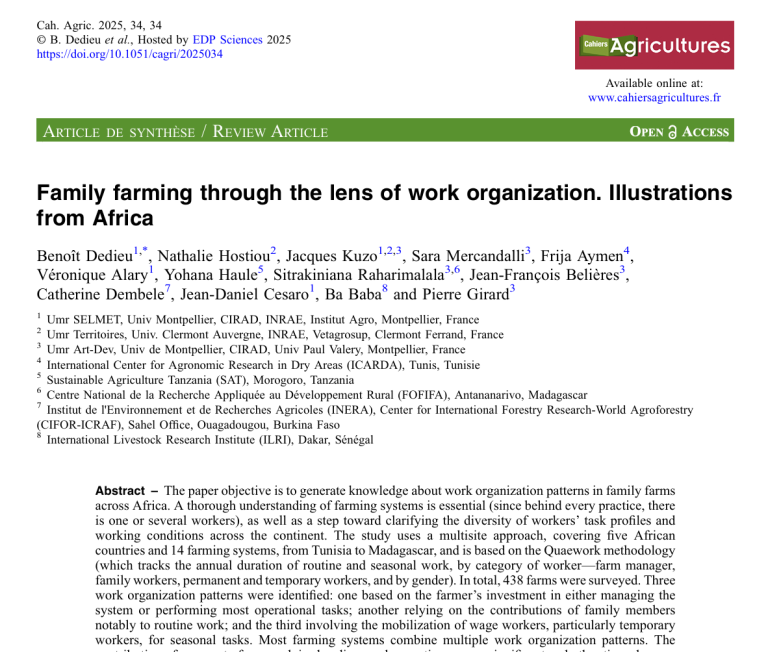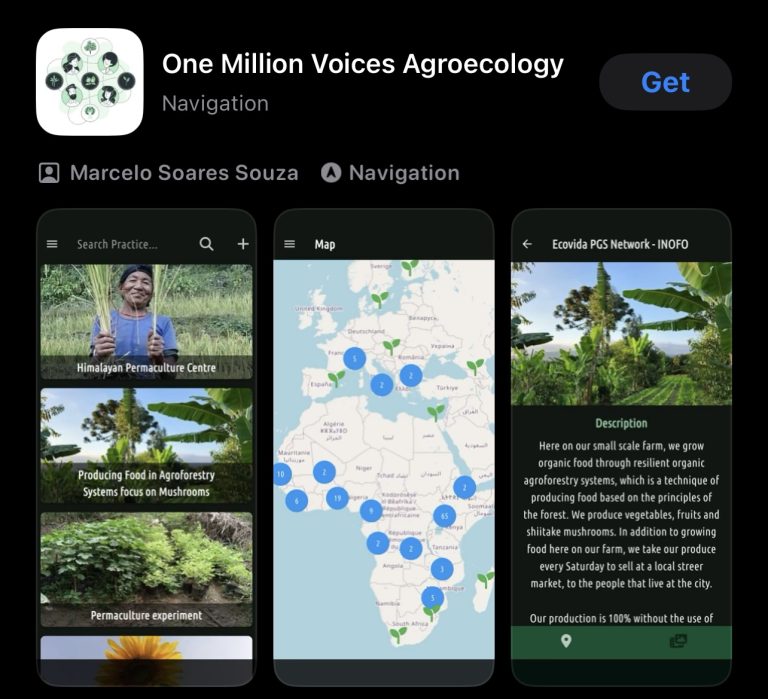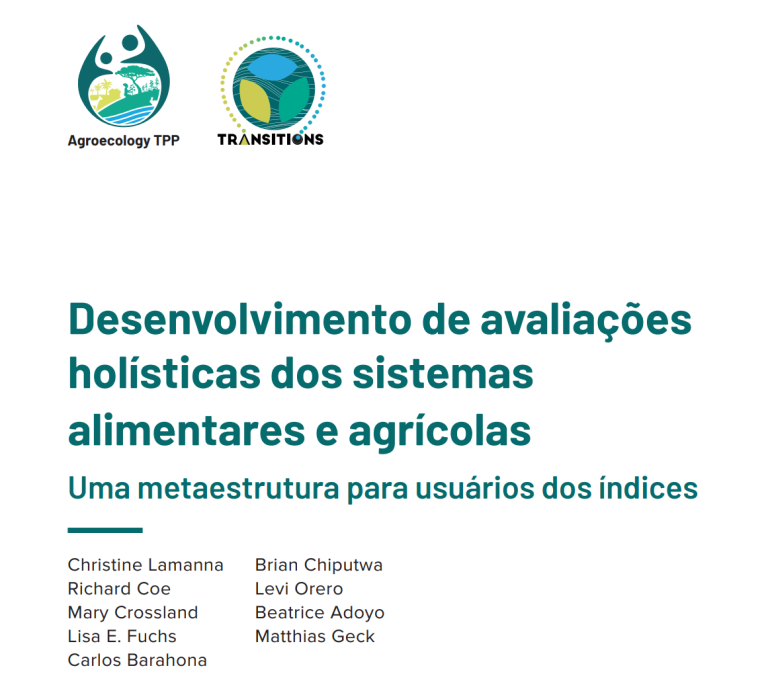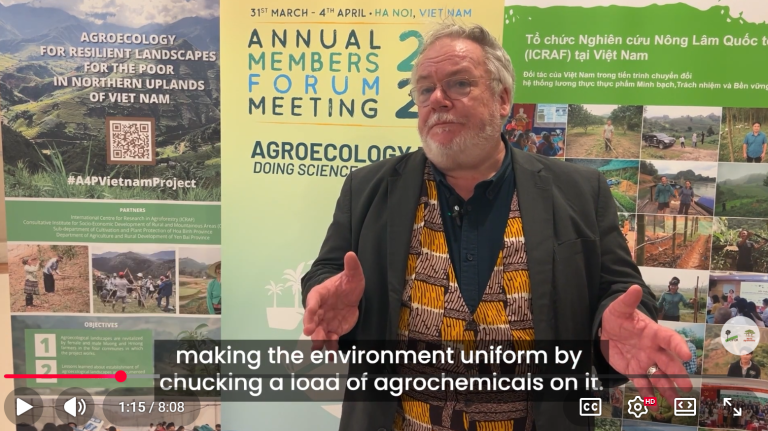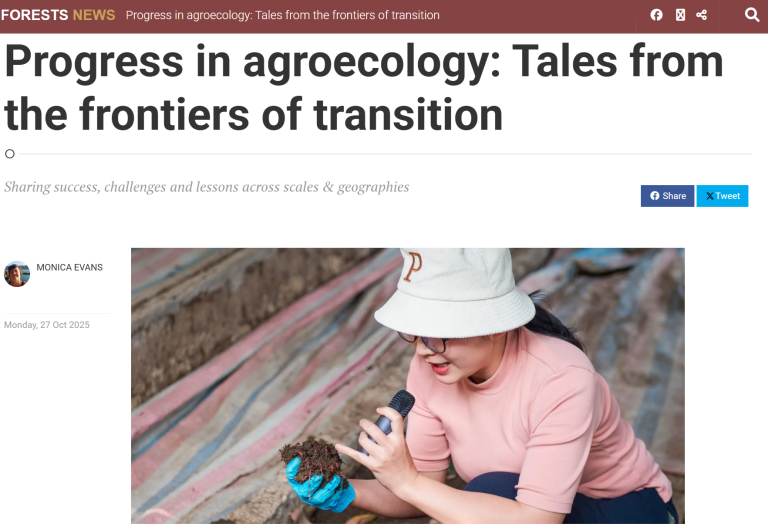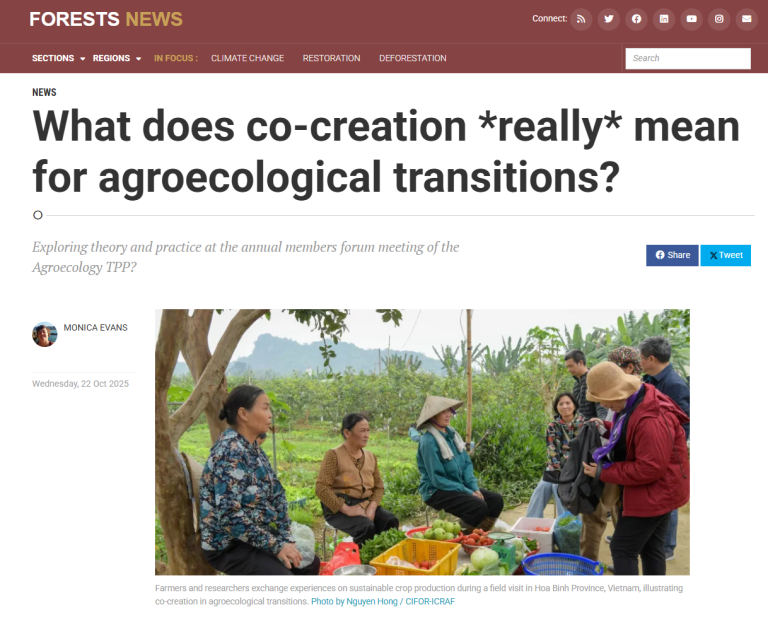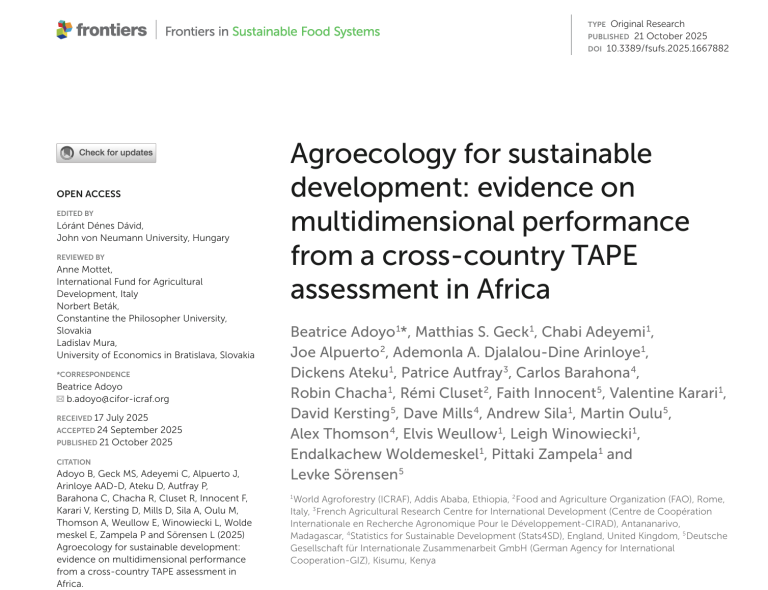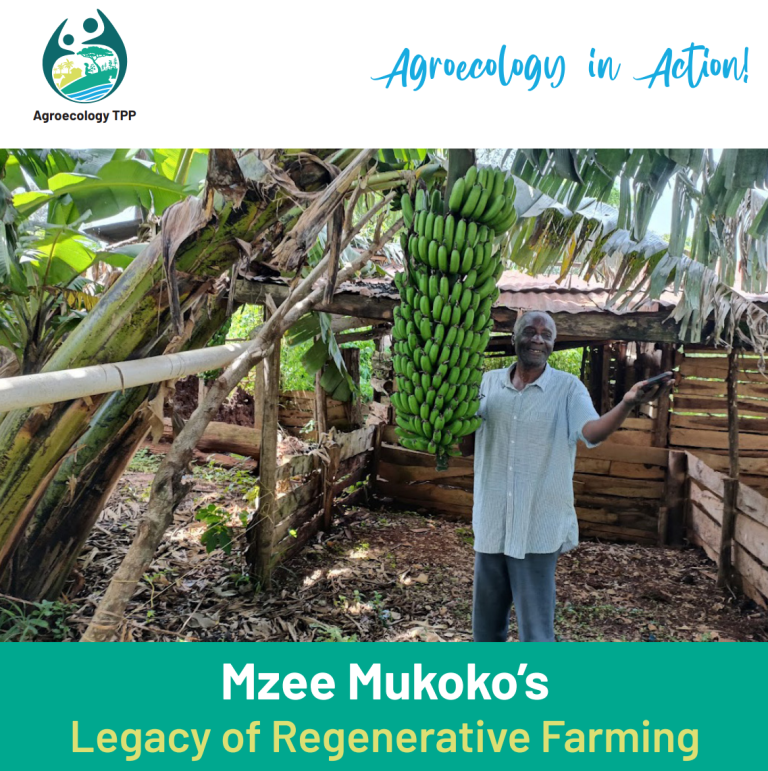Agroecology and the future of food:
Serving people and the planet
The Transformative Partnership
Platform on Agroecology
-
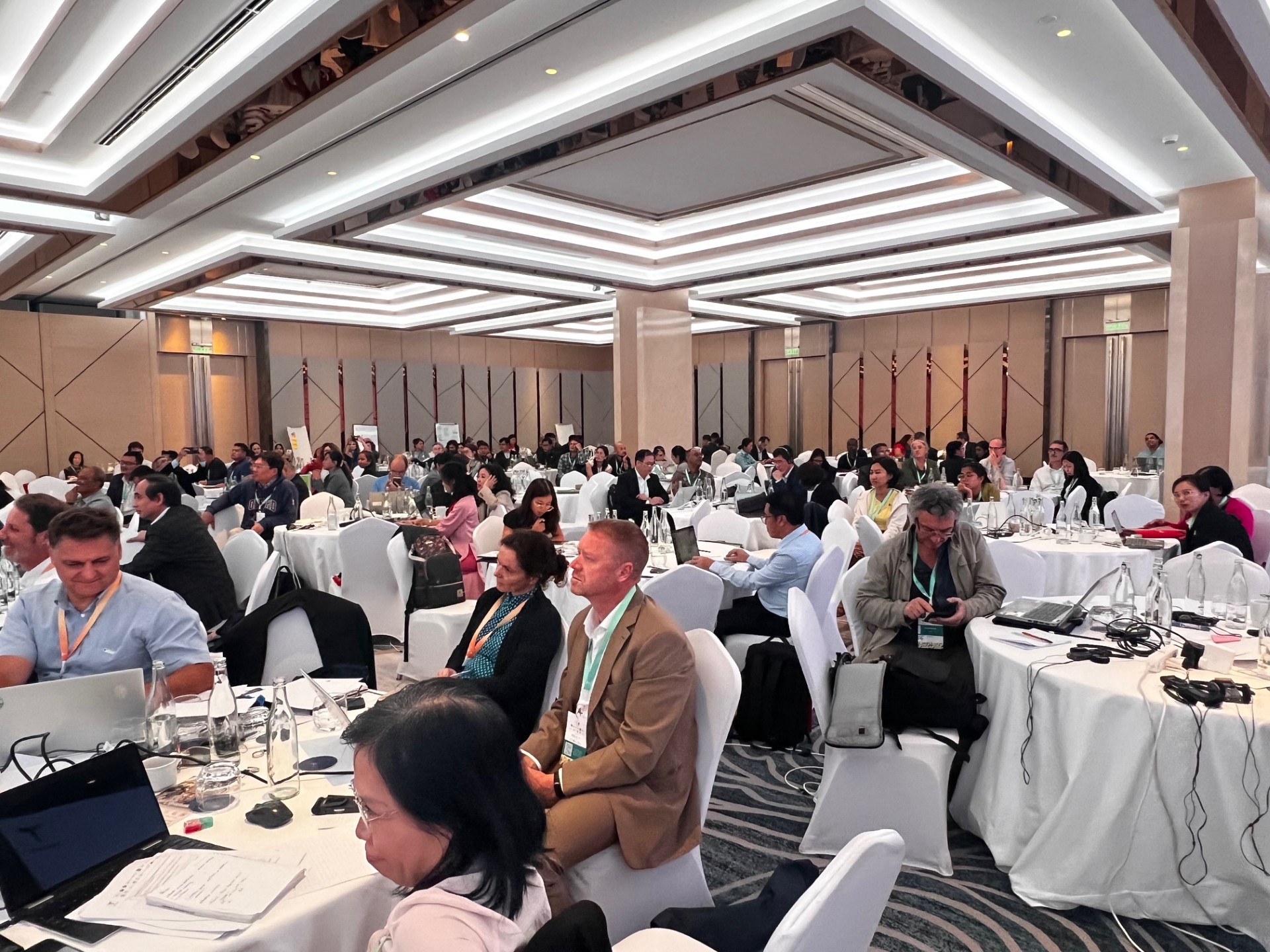 FeaturedEventJoin the TARASA 25 Workshop Online!2025-11-25 • Click the link to register & join the TARASA25 Workshop happening from 25-27 November!
FeaturedEventJoin the TARASA 25 Workshop Online!2025-11-25 • Click the link to register & join the TARASA25 Workshop happening from 25-27 November! -
 FeaturedBlogEthiopia Drafts a National Agroecology Strategy!2025-11-25 • Find out all about the Ethiopian National Agroecology Strategy draft in the latest article by the Ethiopian Herald
FeaturedBlogEthiopia Drafts a National Agroecology Strategy!2025-11-25 • Find out all about the Ethiopian National Agroecology Strategy draft in the latest article by the Ethiopian Herald -
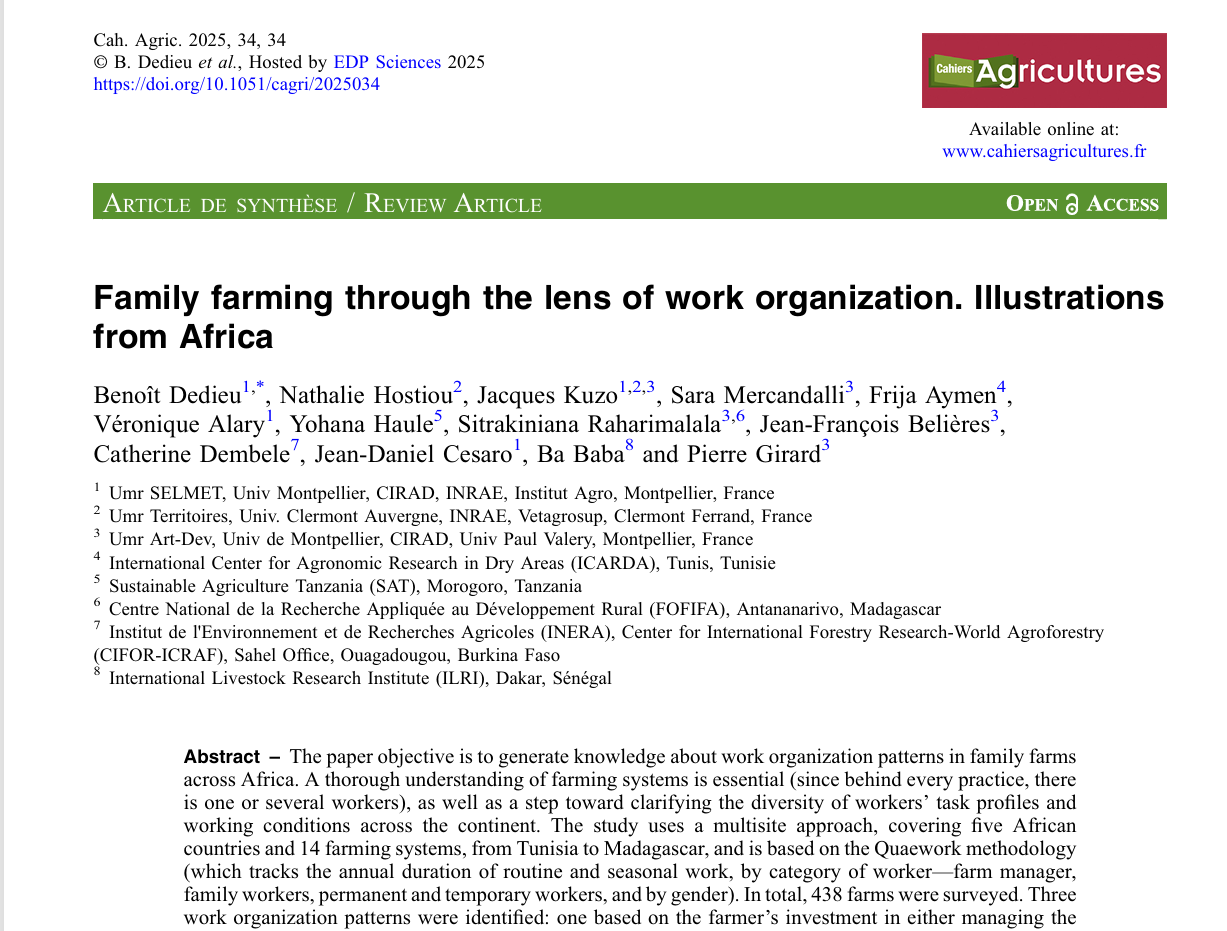 FeaturedJournal ArticleFamily Farming through the lens of Work Organization2025-11-18 • Discover our latest journal article on Family Farming through the lens of work organizations
FeaturedJournal ArticleFamily Farming through the lens of Work Organization2025-11-18 • Discover our latest journal article on Family Farming through the lens of work organizations -
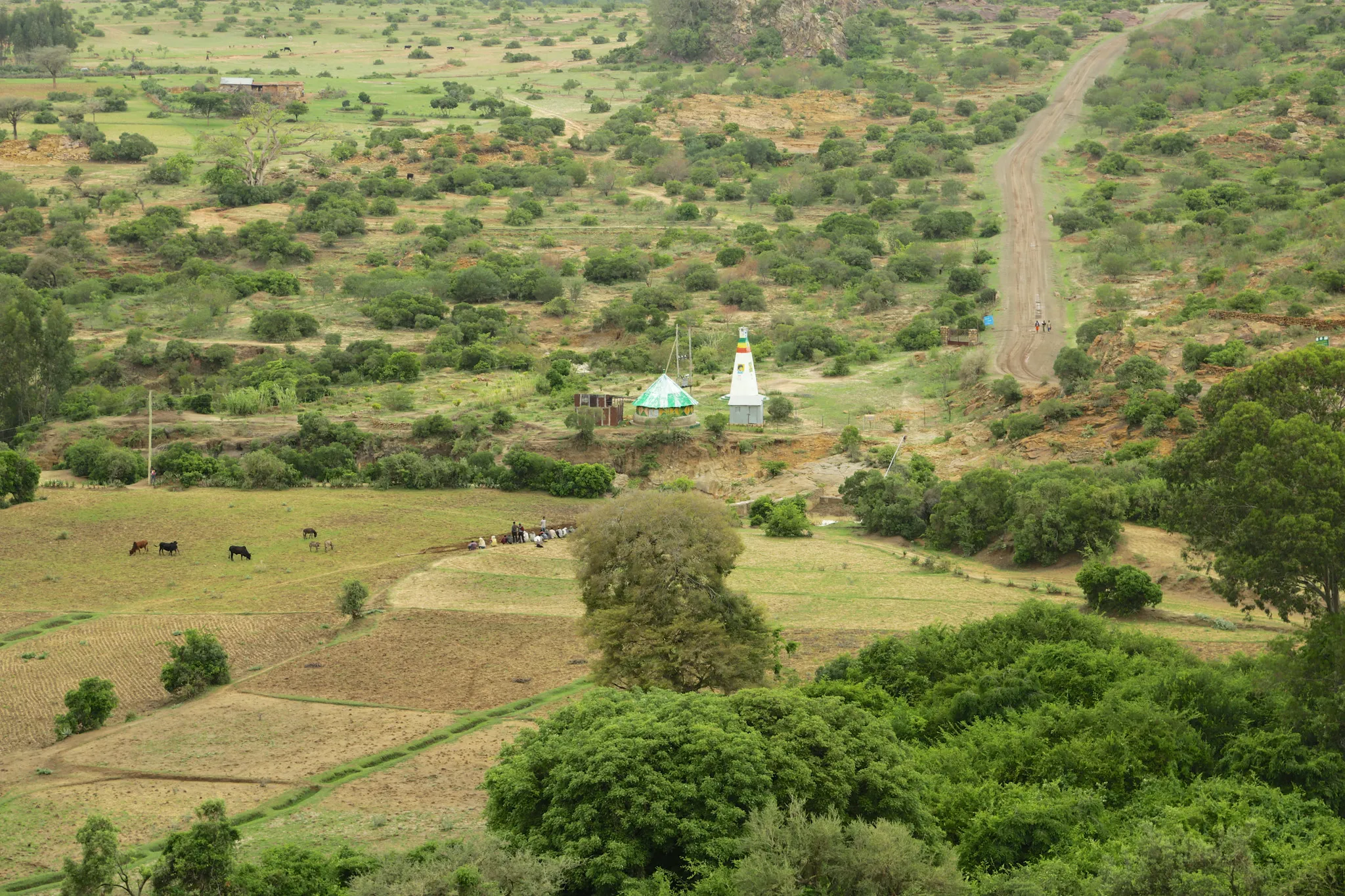 FeaturedBlogScaling up agroecology for Africa’s climate-resilient future2025-11-04 • Read all about how Agroecology took center stage at this side event during the Africa Climate Summit 2 Event in Ethiopia
FeaturedBlogScaling up agroecology for Africa’s climate-resilient future2025-11-04 • Read all about how Agroecology took center stage at this side event during the Africa Climate Summit 2 Event in Ethiopia -
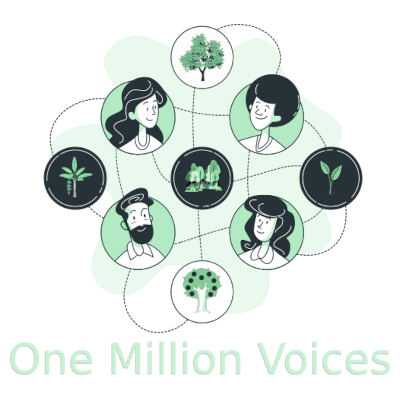 FeaturedAppNow Launched: One Million Voices of Agroecology App 2.0.0 version!2025-11-10 • Download the latest version of the One Million Voices app, available on iOS and Android!
FeaturedAppNow Launched: One Million Voices of Agroecology App 2.0.0 version!2025-11-10 • Download the latest version of the One Million Voices app, available on iOS and Android! -
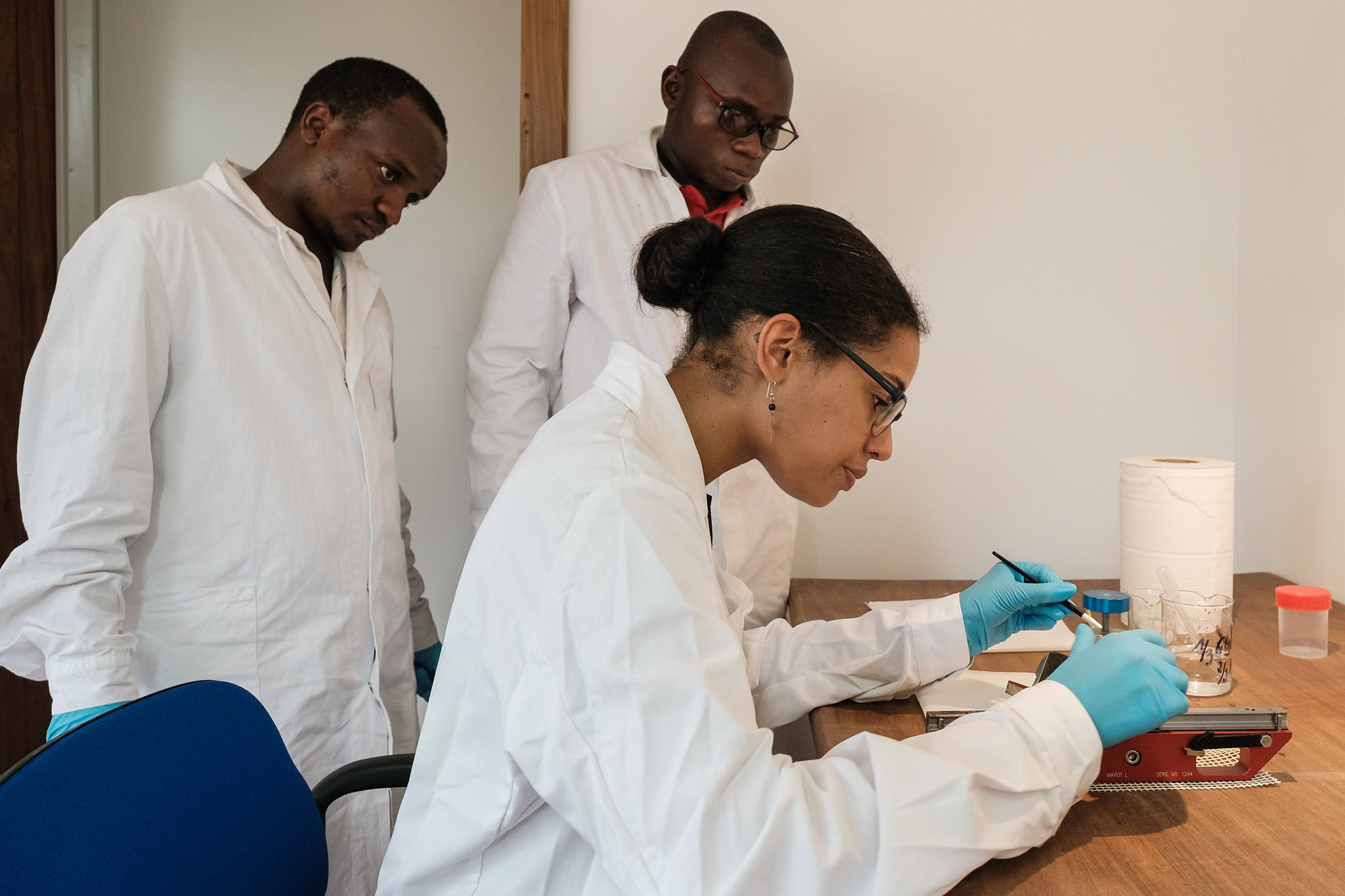 FeaturedInnovationsBook a session with one of our scientists!2024-11-05 • Choose an agroecology topic and discuss with us!
FeaturedInnovationsBook a session with one of our scientists!2024-11-05 • Choose an agroecology topic and discuss with us!
Where we work
Countries
Benin
-
Aligned Projects Agroecology Network to promote the sustainability of food systems in West and Central Africa (RMRN-RADiUS)
The RMRN-RADiUS project brings together diverse stakeholders across West and Central Africa to sustainably ensure the economic, food, and nutritional security and sovereignty of populations by supporting the agroecological transition of WCA farms through the promotion of principles, assessment tools, knowledge, and innovative solutions
Ongoing -
Aligned Projects Agroecology Leadership Academy – Cultivating Transformation
Agriculture is crucial for many African economies. However, current agriculture and food systems face challenges due to climate change and non-climatic stresses. To address these issues, increasing resilience of food systems and ecosystems is essential, and an agroecological transition towards sustainable agri-food systems is considered a central task for the future. The EU-cofunded action "ProSilience" works specifically on this task. It is embedded in the Global Programme “Soil Protection and Rehabilitation for Food Security” (ProSoil), which is commissioned by the Federal Ministry for Economic Cooperation and Development (BMZ), co-funded by the European Union and implemented by the Deutsche Gesellschaft für Internationale Zusammenarbeit (GIZ) GmbH. ProSilience is being implemented in Benin, Ethiopia, Kenya, and Madagascar. It also includes cross-country activities covering all seven partner countries of ProSoil. Transformative change effort in the context of agroecological transition can only be realized if initiated and sustained by committed and visionary partners in the countries. As drivers of change, they influence and shape the future and have a key role to play in building alliances with other stakeholders, advancing efforts of transition, developing and communicating knowledge around agroecological transitioning. Implementing change as an individual, requires much more than being highly skilled. A set of…
Ongoing -
Integrated Projects Measuring Agroecology and its Performance (MAP)
The Measuring Agroecology and its Performance (MAP) project aims to generate evidence on the multidimensional performance of agroecology by using the Tool for Agroecological Performance Evaluation (TAPE) and the Agroecology Criteria Tool (ACT).
Completed -
Aligned Projects Agroecology and circular economy for ecosystem services
The Agroecology and Circular Economy for Ecosystem Services (ACE4ES) project represents a transformative multidisciplinary initiative underpinned by technology and innovation, capacity building, governance strengthening and mass communication. ACE4ES seeks to revolutionize agricultural and food systems by integrating agroecological principles and circular economy practices to enhance the resilience of livelihoods and landscapes, particularly in rice and maize production across Africa. Through research, technology validation, and knowledge-sharing activities, ACE4ES aims to address key knowledge and implementation gaps in agroecology, contributing to evidence-based advocacy and informed policy-making. By fostering collaboration among diverse stakeholders and leveraging existing initiatives, ACE4ES accelerates agroecological transitions and promotes sustainable agriculture on a broader scale. The project's integration within the Agroecology TPP aligns with the platform's goals of building inclusive communities of practice, advancing collaborative approaches, and facilitating knowledge co-creation to achieve transformative change in agricultural systems. Project scope and aim The ACE4ES project aims to implement agroecology and circular economy technologies to mitigate Short-Lived Climate Pollutants (SLCPs) in rice and maize production across Africa. Its scope encompasses research, technology validation, and knowledge transfer activities to enhance the resilience of livelihoods and landscapes. By focusing on SLCP reduction, ACE4ES addresses critical environmental and socio-economic challenges while promoting sustainable agricultural…
Ongoing
Bolivia
-
Aligned Projects Long-term Farming Systems Comparison in the Tropics (SysCom)
The Long-term Farming Systems Comparison in the Tropics (SysCom) programme aims to enhance scientific and practical knowledge on the potentials and limitations of different agricultural production systems in tropical regions, thereby contributing to sustainable agriculture.
Ongoing
Brazil
-
Integrated Projects Metrics: To Support Agroecological TRANSITIONS for building resilient, inclusive agricultural and food systems
The Metrics project aims to support agroecological transitions through the development and adoption of holistic metrics and assessments for food and agricultural systems performance. This addresses a key challenge to up-scaling agroecology which is providing policymakers, donors, development actors and farmers with ways of measuring performance that allow for fair comparison with alternatives.
Ongoing -
Integrated Projects Transitions to Agroecology
TRANSITIONS aims to enable climate-informed agroecological transitions by farmers at significant scales in LMICs through the development and adoption of holistic metrics for food and agricultural systems performance, inclusive digital tools and traceable private-public sector incentives and investments for food systems.
Ongoing
Burkina Faso
-
Aligned Projects Agroecology Network to promote the sustainability of food systems in West and Central Africa (RMRN-RADiUS)
The RMRN-RADiUS project brings together diverse stakeholders across West and Central Africa to sustainably ensure the economic, food, and nutritional security and sovereignty of populations by supporting the agroecological transition of WCA farms through the promotion of principles, assessment tools, knowledge, and innovative solutions
Ongoing -
Aligned Projects Agroecology Leadership Academy – Cultivating Transformation
Agriculture is crucial for many African economies. However, current agriculture and food systems face challenges due to climate change and non-climatic stresses. To address these issues, increasing resilience of food systems and ecosystems is essential, and an agroecological transition towards sustainable agri-food systems is considered a central task for the future. The EU-cofunded action "ProSilience" works specifically on this task. It is embedded in the Global Programme “Soil Protection and Rehabilitation for Food Security” (ProSoil), which is commissioned by the Federal Ministry for Economic Cooperation and Development (BMZ), co-funded by the European Union and implemented by the Deutsche Gesellschaft für Internationale Zusammenarbeit (GIZ) GmbH. ProSilience is being implemented in Benin, Ethiopia, Kenya, and Madagascar. It also includes cross-country activities covering all seven partner countries of ProSoil. Transformative change effort in the context of agroecological transition can only be realized if initiated and sustained by committed and visionary partners in the countries. As drivers of change, they influence and shape the future and have a key role to play in building alliances with other stakeholders, advancing efforts of transition, developing and communicating knowledge around agroecological transitioning. Implementing change as an individual, requires much more than being highly skilled. A set of…
Ongoing -
Integrated Projects Metrics: To Support Agroecological TRANSITIONS for building resilient, inclusive agricultural and food systems
The Metrics project aims to support agroecological transitions through the development and adoption of holistic metrics and assessments for food and agricultural systems performance. This addresses a key challenge to up-scaling agroecology which is providing policymakers, donors, development actors and farmers with ways of measuring performance that allow for fair comparison with alternatives.
Ongoing - Integrated Projects Holistic Performance Measurement for Food Systems Transformation - A Scoping Study Completed
-
Integrated Projects The Agroecology Initiative
Overview The CGIAR Initiative on 'Transformational Agroecology across Food, Land and Water Systems' works with small-scale farmers across seven nations in Africa, Asia and Latin America. The initiative builds on the premise that to be successful, agroecology must be flexible with solutions tailored to specific environmental, socio-cultural, economic, and political contexts rather than offering prescriptive approaches. To achieve this, the initiative prioritizes participation, co-creation and sharing of knowledge to catalyze technological and institutional innovations; behavioral change across food system actors; and safeguarding social equity and responsibility among farmers and other food system actors during transitions. The initiative works with farmers and other food system actors to ensure that agriculture harnesses nature’s goods and services whilst minimizing adverse impacts on the environment and improving knowledge co-creation and inclusive relationships among food system actors. It also support the application of agroecological principles in food, land, and water systems, working to co-develop and implement agroecological innovations across the food system. Visit the website Follow the hashtag #AgroecologyInitiative Download the brochure To sign up for the newsletter or receive further information, please contact Simone Staiger Project scope and aim The initiative works through five separate but inter-related work packages: Transdisciplinary co-creation of innovations in…
Completed -
Integrated Projects Transitions to Agroecology
TRANSITIONS aims to enable climate-informed agroecological transitions by farmers at significant scales in LMICs through the development and adoption of holistic metrics for food and agricultural systems performance, inclusive digital tools and traceable private-public sector incentives and investments for food systems.
Ongoing
Burundi
- Aligned Projects CANALLS Ongoing
Cambodia
-
Aligned Projects Agroecology & Safe Food System Transitions in South East Asia (ASSET)
The overall aim of the ASSET project is to transform food and agricultural systems in Southeast Asia into more sustainable, safe and inclusive, through harnessing the potential of agroecology. ASSET endeavors to develop and promote a shared vision of agroecology and safe food system transitions through a comprehensive approach that includes research, networking, policy advocacy, capacity development, awareness raising, and communication. ASSET fosters technical, organizational, and institutional innovations at territorial level in flagship programs, while generating evidence on their performance and impact. Building upon regional reliable initiatives and institutions, it supports a dialogue on linking agricultural and market transformations in policy frameworks at local, national and regional level, and strives to bring successful approaches to scale. It is implemented by GRET as general coordinator, in strong collaboration with CIRAD in charge of the scientific coordination, and in partnership with a Consortium of 20 international, European, and national Institutions and organizations as well as two United Nations agencies. The consortium engages with governments, civil society, private sector and smallholder farmers to generate and transform knowledge into sustainable innovation processes and policies, sensitive to youth and gender equality. Project scope and aim The overall aim of the ASSET Project is to transform…
Ongoing
Cameroon
-
Aligned Projects Agroecology Network to promote the sustainability of food systems in West and Central Africa (RMRN-RADiUS)
The RMRN-RADiUS project brings together diverse stakeholders across West and Central Africa to sustainably ensure the economic, food, and nutritional security and sovereignty of populations by supporting the agroecological transition of WCA farms through the promotion of principles, assessment tools, knowledge, and innovative solutions
Ongoing - Aligned Projects CANALLS Ongoing
Colombia
- Aligned Projects Multifunctional Landscapes Science Program Ongoing
Democratic Republic of the Congo
- Aligned Projects CANALLS Ongoing
Egypt
-
Aligned Projects Collective Action – Inclusive Digital Agriculture
The Inclusive Digital Agriculture project aims to access how high-quality farmer-to-farmer learning videos—combined with young private extension service providers (led by women or with women team members) and an AI-powered chatbot integrated into the Access Agriculture Mobile App—can facilitate large-scale co-creation of agroecological knowledge.
Ongoing
Ethiopia
-
Aligned Projects Agroecology Leadership Academy – Cultivating Transformation
Agriculture is crucial for many African economies. However, current agriculture and food systems face challenges due to climate change and non-climatic stresses. To address these issues, increasing resilience of food systems and ecosystems is essential, and an agroecological transition towards sustainable agri-food systems is considered a central task for the future. The EU-cofunded action "ProSilience" works specifically on this task. It is embedded in the Global Programme “Soil Protection and Rehabilitation for Food Security” (ProSoil), which is commissioned by the Federal Ministry for Economic Cooperation and Development (BMZ), co-funded by the European Union and implemented by the Deutsche Gesellschaft für Internationale Zusammenarbeit (GIZ) GmbH. ProSilience is being implemented in Benin, Ethiopia, Kenya, and Madagascar. It also includes cross-country activities covering all seven partner countries of ProSoil. Transformative change effort in the context of agroecological transition can only be realized if initiated and sustained by committed and visionary partners in the countries. As drivers of change, they influence and shape the future and have a key role to play in building alliances with other stakeholders, advancing efforts of transition, developing and communicating knowledge around agroecological transitioning. Implementing change as an individual, requires much more than being highly skilled. A set of…
Ongoing -
Integrated Projects Metrics: To Support Agroecological TRANSITIONS for building resilient, inclusive agricultural and food systems
The Metrics project aims to support agroecological transitions through the development and adoption of holistic metrics and assessments for food and agricultural systems performance. This addresses a key challenge to up-scaling agroecology which is providing policymakers, donors, development actors and farmers with ways of measuring performance that allow for fair comparison with alternatives.
Ongoing -
Integrated Projects Measuring Agroecology and its Performance (MAP)
The Measuring Agroecology and its Performance (MAP) project aims to generate evidence on the multidimensional performance of agroecology by using the Tool for Agroecological Performance Evaluation (TAPE) and the Agroecology Criteria Tool (ACT).
Completed -
Integrated Projects Transformative Land Investment
The Transformative Land Investment (TLI) project fosters mainstreaming by working with investors, the national business ecosystem, and global and regional development communities.
Ongoing -
Integrated Projects Transitions to Agroecology
TRANSITIONS aims to enable climate-informed agroecological transitions by farmers at significant scales in LMICs through the development and adoption of holistic metrics for food and agricultural systems performance, inclusive digital tools and traceable private-public sector incentives and investments for food systems.
Ongoing
Ghana
-
Integrated Projects Metrics: To Support Agroecological TRANSITIONS for building resilient, inclusive agricultural and food systems
The Metrics project aims to support agroecological transitions through the development and adoption of holistic metrics and assessments for food and agricultural systems performance. This addresses a key challenge to up-scaling agroecology which is providing policymakers, donors, development actors and farmers with ways of measuring performance that allow for fair comparison with alternatives.
Ongoing - Integrated Projects Holistic Performance Measurement for Food Systems Transformation - A Scoping Study Completed
-
Integrated Projects Transformative Land Investment
The Transformative Land Investment (TLI) project fosters mainstreaming by working with investors, the national business ecosystem, and global and regional development communities.
Ongoing -
Aligned Projects Agroecology and circular economy for ecosystem services
The Agroecology and Circular Economy for Ecosystem Services (ACE4ES) project represents a transformative multidisciplinary initiative underpinned by technology and innovation, capacity building, governance strengthening and mass communication. ACE4ES seeks to revolutionize agricultural and food systems by integrating agroecological principles and circular economy practices to enhance the resilience of livelihoods and landscapes, particularly in rice and maize production across Africa. Through research, technology validation, and knowledge-sharing activities, ACE4ES aims to address key knowledge and implementation gaps in agroecology, contributing to evidence-based advocacy and informed policy-making. By fostering collaboration among diverse stakeholders and leveraging existing initiatives, ACE4ES accelerates agroecological transitions and promotes sustainable agriculture on a broader scale. The project's integration within the Agroecology TPP aligns with the platform's goals of building inclusive communities of practice, advancing collaborative approaches, and facilitating knowledge co-creation to achieve transformative change in agricultural systems. Project scope and aim The ACE4ES project aims to implement agroecology and circular economy technologies to mitigate Short-Lived Climate Pollutants (SLCPs) in rice and maize production across Africa. Its scope encompasses research, technology validation, and knowledge transfer activities to enhance the resilience of livelihoods and landscapes. By focusing on SLCP reduction, ACE4ES addresses critical environmental and socio-economic challenges while promoting sustainable agricultural…
Ongoing -
Integrated Projects Transitions to Agroecology
TRANSITIONS aims to enable climate-informed agroecological transitions by farmers at significant scales in LMICs through the development and adoption of holistic metrics for food and agricultural systems performance, inclusive digital tools and traceable private-public sector incentives and investments for food systems.
Ongoing
India
-
Aligned Projects Long-term Farming Systems Comparison in the Tropics (SysCom)
The Long-term Farming Systems Comparison in the Tropics (SysCom) programme aims to enhance scientific and practical knowledge on the potentials and limitations of different agricultural production systems in tropical regions, thereby contributing to sustainable agriculture.
Ongoing -
Aligned Projects Collective Action – Inclusive Digital Agriculture
The Inclusive Digital Agriculture project aims to access how high-quality farmer-to-farmer learning videos—combined with young private extension service providers (led by women or with women team members) and an AI-powered chatbot integrated into the Access Agriculture Mobile App—can facilitate large-scale co-creation of agroecological knowledge.
Ongoing - Aligned Projects Multifunctional Landscapes Science Program Ongoing
-
Aligned Projects Agroecology Leadership Academy – Cultivating Transformation
Agriculture is crucial for many African economies. However, current agriculture and food systems face challenges due to climate change and non-climatic stresses. To address these issues, increasing resilience of food systems and ecosystems is essential, and an agroecological transition towards sustainable agri-food systems is considered a central task for the future. The EU-cofunded action "ProSilience" works specifically on this task. It is embedded in the Global Programme “Soil Protection and Rehabilitation for Food Security” (ProSoil), which is commissioned by the Federal Ministry for Economic Cooperation and Development (BMZ), co-funded by the European Union and implemented by the Deutsche Gesellschaft für Internationale Zusammenarbeit (GIZ) GmbH. ProSilience is being implemented in Benin, Ethiopia, Kenya, and Madagascar. It also includes cross-country activities covering all seven partner countries of ProSoil. Transformative change effort in the context of agroecological transition can only be realized if initiated and sustained by committed and visionary partners in the countries. As drivers of change, they influence and shape the future and have a key role to play in building alliances with other stakeholders, advancing efforts of transition, developing and communicating knowledge around agroecological transitioning. Implementing change as an individual, requires much more than being highly skilled. A set of…
Ongoing -
Integrated Projects Metrics: To Support Agroecological TRANSITIONS for building resilient, inclusive agricultural and food systems
The Metrics project aims to support agroecological transitions through the development and adoption of holistic metrics and assessments for food and agricultural systems performance. This addresses a key challenge to up-scaling agroecology which is providing policymakers, donors, development actors and farmers with ways of measuring performance that allow for fair comparison with alternatives.
Ongoing -
Integrated Projects The Agroecology Initiative
Overview The CGIAR Initiative on 'Transformational Agroecology across Food, Land and Water Systems' works with small-scale farmers across seven nations in Africa, Asia and Latin America. The initiative builds on the premise that to be successful, agroecology must be flexible with solutions tailored to specific environmental, socio-cultural, economic, and political contexts rather than offering prescriptive approaches. To achieve this, the initiative prioritizes participation, co-creation and sharing of knowledge to catalyze technological and institutional innovations; behavioral change across food system actors; and safeguarding social equity and responsibility among farmers and other food system actors during transitions. The initiative works with farmers and other food system actors to ensure that agriculture harnesses nature’s goods and services whilst minimizing adverse impacts on the environment and improving knowledge co-creation and inclusive relationships among food system actors. It also support the application of agroecological principles in food, land, and water systems, working to co-develop and implement agroecological innovations across the food system. Visit the website Follow the hashtag #AgroecologyInitiative Download the brochure To sign up for the newsletter or receive further information, please contact Simone Staiger Project scope and aim The initiative works through five separate but inter-related work packages: Transdisciplinary co-creation of innovations in…
Completed -
Aligned Projects Foresight to support Sustainable Food Systems Transformation through Agroecology
Current global challenges put strong emphasis on the urgent need for a sustainable transformation of agriculture and food systems. As recognized by several landmark reports, integrated biodiverse approaches including agroecology are a key part of the response. Foresight processes that properly incorporate integrated biodiverse approaches – including agroecology - to foster sustainable food system transformations can help decision-makers prepare for an anticipated change and provoke a desired transition that is supported by the majority of stakeholders. Therefore, sustainable food system transformations require appropriate tools designed to make behavior change attractive. In particular, agricultural foresight methodologies need to: consider new drivers look at the whole food systems and not only at some elements build appealing narratives and imagine new quantitative models able to represent complex practices and larger number of crops and food system components incorporate policy makers in the whole process and take into account interactions between geographical scales. This project contributes to GIZ’s Support of Agroecological Transformation Processes in India (SuATI) program and to the Scaling up Agroecology Initiative. Project scope and aim The project intends to improve the contribution of foresight approaches to sustainable food systems transitions through agroecology by: Confronting and learning from recent foresight processes to…
Completed -
Integrated Projects Transitions to Agroecology
TRANSITIONS aims to enable climate-informed agroecological transitions by farmers at significant scales in LMICs through the development and adoption of holistic metrics for food and agricultural systems performance, inclusive digital tools and traceable private-public sector incentives and investments for food systems.
Ongoing
Ivory Coast
-
Aligned Projects Agroecology Network to promote the sustainability of food systems in West and Central Africa (RMRN-RADiUS)
The RMRN-RADiUS project brings together diverse stakeholders across West and Central Africa to sustainably ensure the economic, food, and nutritional security and sovereignty of populations by supporting the agroecological transition of WCA farms through the promotion of principles, assessment tools, knowledge, and innovative solutions
Ongoing
Kenya
-
Aligned Projects Long-term Farming Systems Comparison in the Tropics (SysCom)
The Long-term Farming Systems Comparison in the Tropics (SysCom) programme aims to enhance scientific and practical knowledge on the potentials and limitations of different agricultural production systems in tropical regions, thereby contributing to sustainable agriculture.
Ongoing - Aligned Projects Multifunctional Landscapes Science Program Ongoing
-
Integrated Projects Regional Multi-actor Research Network on Agroecology in East Africa (RMRN-EA)
The Regional Multi-Actor Research Network on Agroecology in East Africa (RMRN-EA) is focused on driving sustainable agri-food system transitions in sub-Saharan Africa. The network brings together researchers, farmers, civil society, the private sector, and policymakers to co-create knowledge and solutions for resilient agri-food systems. By fostering knowledge collaboration, capacity building, and innovation, the project aims to advance resilient, equitable, and environmentally sustainable farming systems
Ongoing -
Aligned Projects Agroecology Leadership Academy – Cultivating Transformation
Agriculture is crucial for many African economies. However, current agriculture and food systems face challenges due to climate change and non-climatic stresses. To address these issues, increasing resilience of food systems and ecosystems is essential, and an agroecological transition towards sustainable agri-food systems is considered a central task for the future. The EU-cofunded action "ProSilience" works specifically on this task. It is embedded in the Global Programme “Soil Protection and Rehabilitation for Food Security” (ProSoil), which is commissioned by the Federal Ministry for Economic Cooperation and Development (BMZ), co-funded by the European Union and implemented by the Deutsche Gesellschaft für Internationale Zusammenarbeit (GIZ) GmbH. ProSilience is being implemented in Benin, Ethiopia, Kenya, and Madagascar. It also includes cross-country activities covering all seven partner countries of ProSoil. Transformative change effort in the context of agroecological transition can only be realized if initiated and sustained by committed and visionary partners in the countries. As drivers of change, they influence and shape the future and have a key role to play in building alliances with other stakeholders, advancing efforts of transition, developing and communicating knowledge around agroecological transitioning. Implementing change as an individual, requires much more than being highly skilled. A set of…
Ongoing -
Integrated Projects Strengthening the Implementation of Kenya’s Agroecology Strategy to Accelerate Food Systems Transformation
This project seeks to address the pressing issue of food and nutrition insecurity in Kenya, a problem that continues to worsen despite agriculture's significant contribution to the country's GDP, which stood at 21.8% in 2023. Additionally, the project will support the adoption of agroecological practices and enhance the advocacy capacity of civil society, community, and farmer-led organizations.
Ongoing -
Integrated Projects Metrics: To Support Agroecological TRANSITIONS for building resilient, inclusive agricultural and food systems
The Metrics project aims to support agroecological transitions through the development and adoption of holistic metrics and assessments for food and agricultural systems performance. This addresses a key challenge to up-scaling agroecology which is providing policymakers, donors, development actors and farmers with ways of measuring performance that allow for fair comparison with alternatives.
Ongoing -
Aligned Projects Farmer Dashboards
Farmer-led Tools, Dashboard Development, and the Future of Farming (Farmer Dashboards)The Farmer-led Tools, Dashboard Development and the Future of Farming project is interested in identifying participatory ways of collecting farm-level data, and in understanding how that data can be made accessible to smallholders – with particular focus on women and girls – via ‘farmer dashboards’ to improve their farming practices. The project is funded by Global Affairs Canada’s Fund for Innovation and Transformation (GAC FIT) and implemented in collaboration with the Coady International Institute (Canada) and the Self-Employed Women’s Association (SEWA) of India. Project scope and aim The project builds on previous ICRAF work in the Middle Nyando Block, straddling Kisumu and Kericho counties, including the Accelerating Adoption of Agroforestry (Triple A) project, an asset-based community-driven development (ABCD) project implemented from 2015 to 2019. The project works with lead-farmers to develop individual farmer data reports that feature various analyses of farm-level data that had been collected over the previous 6 years with the help of the paper-based integrated household leaky bucket tool. Caption Modality Qualitative research is conducted to understand the Triple A lead-farmers’ expectations and interests in terms of (a) the kind of data, (b) level and detail of…
Completed -
Integrated Projects Measuring Agroecology and its Performance (MAP)
The Measuring Agroecology and its Performance (MAP) project aims to generate evidence on the multidimensional performance of agroecology by using the Tool for Agroecological Performance Evaluation (TAPE) and the Agroecology Criteria Tool (ACT).
Completed -
Integrated Projects The Agroecology Initiative
Overview The CGIAR Initiative on 'Transformational Agroecology across Food, Land and Water Systems' works with small-scale farmers across seven nations in Africa, Asia and Latin America. The initiative builds on the premise that to be successful, agroecology must be flexible with solutions tailored to specific environmental, socio-cultural, economic, and political contexts rather than offering prescriptive approaches. To achieve this, the initiative prioritizes participation, co-creation and sharing of knowledge to catalyze technological and institutional innovations; behavioral change across food system actors; and safeguarding social equity and responsibility among farmers and other food system actors during transitions. The initiative works with farmers and other food system actors to ensure that agriculture harnesses nature’s goods and services whilst minimizing adverse impacts on the environment and improving knowledge co-creation and inclusive relationships among food system actors. It also support the application of agroecological principles in food, land, and water systems, working to co-develop and implement agroecological innovations across the food system. Visit the website Follow the hashtag #AgroecologyInitiative Download the brochure To sign up for the newsletter or receive further information, please contact Simone Staiger Project scope and aim The initiative works through five separate but inter-related work packages: Transdisciplinary co-creation of innovations in…
Completed -
Aligned Projects Invasive Futures
The social ecology of rangelands in changing savanna environments The stewardship of rangelands in Africa is undermined by overstocking and land degradation, entailing the potential collapse of the existing social-ecological rangeland system. One key factor of rangeland degradation and key driver of their conversion to other land uses is the spread of alien invasive plant species that affect both the environment and pastoral livelihoods. Invasion has been observed to massively accelerate in recent years, with land management, conditions of water availability, and soil fertility shaping the observed spread dynamics. In addition, factors such as policies (i.e., act to sedentarize nomadic pastoralists, Land Act), physical insecurity and violent conflicts, as well as infrastructure developments (road construction, geothermal development and associated 'infrastructuring') are likely to drive system shifts, which, in turn, may accelerate invasive spread dynamics. The seasonal availability and quality of pasture are increasingly restricted by the expansion of crop agriculture and the establishment of wildlife conservancies. Further, rainfall variability drives seasonal and inter-annual variability in the availability and quality of forage. In addition, the undesired spread of the exotic invasive plants - such as Parthenium hysterophorus, Opuntia spp. and Prosopis juliflora - is negatively affecting agro-pastoral livelihoods in the Kenyan…
Ongoing -
Aligned Projects ABCD in Regreening
Regreening Kenya by scaling asset-based community-driven development tools and processes, RK-ABCD Overview Regreening Kenya by scaling asset-based community-driven development tools and processes, RK-ABCD The ABCD approach encourages communities and individual households to identify their existing assets and to use what they already have more efficiently and effectively to improve their own lives. It is based on three principles: ‘everyone has gifts’, ‘relationships build a community’, and ‘start with what you have’. Community groups assess their existing assets and strengths. This allows them to develop a clearer understanding of who they are, what they want and what they like, and are hence able to identify their identities, interests and preferences (IIPs). Such assets include: Knowledge, skills and talents (human assets) Community associations and formal organisations and institutions (social assets) Natural resources that support livelihood activities (natural assets) Existing infrastructure and household possessions (physical assets) Means that circulate in the local economy (financial assets) Based on these IIPs, community groups formulate community action plans (CAPs) towards the desired future change for their lives, communities, and landscapes. Aligning their existing assets and strengths, the community members then define different pathways towards realisation of these objectives, including a step-wise activity plan. These pathways differ…
Completed -
Integrated Projects Transitions to Agroecology
TRANSITIONS aims to enable climate-informed agroecological transitions by farmers at significant scales in LMICs through the development and adoption of holistic metrics for food and agricultural systems performance, inclusive digital tools and traceable private-public sector incentives and investments for food systems.
Ongoing
Laos
-
Integrated Projects Transformative Land Investment
The Transformative Land Investment (TLI) project fosters mainstreaming by working with investors, the national business ecosystem, and global and regional development communities.
Ongoing -
Integrated Projects The Agroecology Initiative
Overview The CGIAR Initiative on 'Transformational Agroecology across Food, Land and Water Systems' works with small-scale farmers across seven nations in Africa, Asia and Latin America. The initiative builds on the premise that to be successful, agroecology must be flexible with solutions tailored to specific environmental, socio-cultural, economic, and political contexts rather than offering prescriptive approaches. To achieve this, the initiative prioritizes participation, co-creation and sharing of knowledge to catalyze technological and institutional innovations; behavioral change across food system actors; and safeguarding social equity and responsibility among farmers and other food system actors during transitions. The initiative works with farmers and other food system actors to ensure that agriculture harnesses nature’s goods and services whilst minimizing adverse impacts on the environment and improving knowledge co-creation and inclusive relationships among food system actors. It also support the application of agroecological principles in food, land, and water systems, working to co-develop and implement agroecological innovations across the food system. Visit the website Follow the hashtag #AgroecologyInitiative Download the brochure To sign up for the newsletter or receive further information, please contact Simone Staiger Project scope and aim The initiative works through five separate but inter-related work packages: Transdisciplinary co-creation of innovations in…
Completed -
Aligned Projects Agroecology & Safe Food System Transitions in South East Asia (ASSET)
The overall aim of the ASSET project is to transform food and agricultural systems in Southeast Asia into more sustainable, safe and inclusive, through harnessing the potential of agroecology. ASSET endeavors to develop and promote a shared vision of agroecology and safe food system transitions through a comprehensive approach that includes research, networking, policy advocacy, capacity development, awareness raising, and communication. ASSET fosters technical, organizational, and institutional innovations at territorial level in flagship programs, while generating evidence on their performance and impact. Building upon regional reliable initiatives and institutions, it supports a dialogue on linking agricultural and market transformations in policy frameworks at local, national and regional level, and strives to bring successful approaches to scale. It is implemented by GRET as general coordinator, in strong collaboration with CIRAD in charge of the scientific coordination, and in partnership with a Consortium of 20 international, European, and national Institutions and organizations as well as two United Nations agencies. The consortium engages with governments, civil society, private sector and smallholder farmers to generate and transform knowledge into sustainable innovation processes and policies, sensitive to youth and gender equality. Project scope and aim The overall aim of the ASSET Project is to transform…
Ongoing
Madagascar
-
Aligned Projects Agroecology Leadership Academy – Cultivating Transformation
Agriculture is crucial for many African economies. However, current agriculture and food systems face challenges due to climate change and non-climatic stresses. To address these issues, increasing resilience of food systems and ecosystems is essential, and an agroecological transition towards sustainable agri-food systems is considered a central task for the future. The EU-cofunded action "ProSilience" works specifically on this task. It is embedded in the Global Programme “Soil Protection and Rehabilitation for Food Security” (ProSoil), which is commissioned by the Federal Ministry for Economic Cooperation and Development (BMZ), co-funded by the European Union and implemented by the Deutsche Gesellschaft für Internationale Zusammenarbeit (GIZ) GmbH. ProSilience is being implemented in Benin, Ethiopia, Kenya, and Madagascar. It also includes cross-country activities covering all seven partner countries of ProSoil. Transformative change effort in the context of agroecological transition can only be realized if initiated and sustained by committed and visionary partners in the countries. As drivers of change, they influence and shape the future and have a key role to play in building alliances with other stakeholders, advancing efforts of transition, developing and communicating knowledge around agroecological transitioning. Implementing change as an individual, requires much more than being highly skilled. A set of…
Ongoing -
Integrated Projects Measuring Agroecology and its Performance (MAP)
The Measuring Agroecology and its Performance (MAP) project aims to generate evidence on the multidimensional performance of agroecology by using the Tool for Agroecological Performance Evaluation (TAPE) and the Agroecology Criteria Tool (ACT).
Completed
Morocco
-
Aligned Projects Collective Action – Inclusive Digital Agriculture
The Inclusive Digital Agriculture project aims to access how high-quality farmer-to-farmer learning videos—combined with young private extension service providers (led by women or with women team members) and an AI-powered chatbot integrated into the Access Agriculture Mobile App—can facilitate large-scale co-creation of agroecological knowledge.
Ongoing
Mozambique
-
Integrated Projects Transformative Land Investment
The Transformative Land Investment (TLI) project fosters mainstreaming by working with investors, the national business ecosystem, and global and regional development communities.
Ongoing
Myanmar
-
Integrated Projects Transformative Land Investment
The Transformative Land Investment (TLI) project fosters mainstreaming by working with investors, the national business ecosystem, and global and regional development communities.
Ongoing -
Aligned Projects Agroecology & Safe Food System Transitions in South East Asia (ASSET)
The overall aim of the ASSET project is to transform food and agricultural systems in Southeast Asia into more sustainable, safe and inclusive, through harnessing the potential of agroecology. ASSET endeavors to develop and promote a shared vision of agroecology and safe food system transitions through a comprehensive approach that includes research, networking, policy advocacy, capacity development, awareness raising, and communication. ASSET fosters technical, organizational, and institutional innovations at territorial level in flagship programs, while generating evidence on their performance and impact. Building upon regional reliable initiatives and institutions, it supports a dialogue on linking agricultural and market transformations in policy frameworks at local, national and regional level, and strives to bring successful approaches to scale. It is implemented by GRET as general coordinator, in strong collaboration with CIRAD in charge of the scientific coordination, and in partnership with a Consortium of 20 international, European, and national Institutions and organizations as well as two United Nations agencies. The consortium engages with governments, civil society, private sector and smallholder farmers to generate and transform knowledge into sustainable innovation processes and policies, sensitive to youth and gender equality. Project scope and aim The overall aim of the ASSET Project is to transform…
Ongoing
Nigeria
-
Aligned Projects Agroecology and circular economy for ecosystem services
The Agroecology and Circular Economy for Ecosystem Services (ACE4ES) project represents a transformative multidisciplinary initiative underpinned by technology and innovation, capacity building, governance strengthening and mass communication. ACE4ES seeks to revolutionize agricultural and food systems by integrating agroecological principles and circular economy practices to enhance the resilience of livelihoods and landscapes, particularly in rice and maize production across Africa. Through research, technology validation, and knowledge-sharing activities, ACE4ES aims to address key knowledge and implementation gaps in agroecology, contributing to evidence-based advocacy and informed policy-making. By fostering collaboration among diverse stakeholders and leveraging existing initiatives, ACE4ES accelerates agroecological transitions and promotes sustainable agriculture on a broader scale. The project's integration within the Agroecology TPP aligns with the platform's goals of building inclusive communities of practice, advancing collaborative approaches, and facilitating knowledge co-creation to achieve transformative change in agricultural systems. Project scope and aim The ACE4ES project aims to implement agroecology and circular economy technologies to mitigate Short-Lived Climate Pollutants (SLCPs) in rice and maize production across Africa. Its scope encompasses research, technology validation, and knowledge transfer activities to enhance the resilience of livelihoods and landscapes. By focusing on SLCP reduction, ACE4ES addresses critical environmental and socio-economic challenges while promoting sustainable agricultural…
Ongoing - Integrated Projects One Million Voices Completed
Peru
- Aligned Projects Multifunctional Landscapes Science Program Ongoing
-
Integrated Projects Metrics: To Support Agroecological TRANSITIONS for building resilient, inclusive agricultural and food systems
The Metrics project aims to support agroecological transitions through the development and adoption of holistic metrics and assessments for food and agricultural systems performance. This addresses a key challenge to up-scaling agroecology which is providing policymakers, donors, development actors and farmers with ways of measuring performance that allow for fair comparison with alternatives.
Ongoing -
Integrated Projects The Agroecology Initiative
Overview The CGIAR Initiative on 'Transformational Agroecology across Food, Land and Water Systems' works with small-scale farmers across seven nations in Africa, Asia and Latin America. The initiative builds on the premise that to be successful, agroecology must be flexible with solutions tailored to specific environmental, socio-cultural, economic, and political contexts rather than offering prescriptive approaches. To achieve this, the initiative prioritizes participation, co-creation and sharing of knowledge to catalyze technological and institutional innovations; behavioral change across food system actors; and safeguarding social equity and responsibility among farmers and other food system actors during transitions. The initiative works with farmers and other food system actors to ensure that agriculture harnesses nature’s goods and services whilst minimizing adverse impacts on the environment and improving knowledge co-creation and inclusive relationships among food system actors. It also support the application of agroecological principles in food, land, and water systems, working to co-develop and implement agroecological innovations across the food system. Visit the website Follow the hashtag #AgroecologyInitiative Download the brochure To sign up for the newsletter or receive further information, please contact Simone Staiger Project scope and aim The initiative works through five separate but inter-related work packages: Transdisciplinary co-creation of innovations in…
Completed -
Aligned Projects Peru’s Agroforestry Concessions Scheme (AgroFor)
Peru’s Agroforestry Concessions Scheme: Enabling Multi-level Implementation of an Innovative, Transformative Policy (AgroFor) In 2011, the Government of Peru (GoP) established the Agroforestry Concessions (AC) scheme as part of the new Forest and Wildlife Law. It is a major and innovative legal and policy measure aimed at formalizing the access and use of land and trees resources by smallholders, settled on state forest domain under the assumption that the legal status associated with AC and its benefits would allow them to shift to more sustainable land management practices in order to contribute to restoration and forest conservation. The AC scheme can significantly reduce deforestation, all the while improving livelihoods of vulnerable, small-scale Amazonian farmers. Successful roll-out of the AC scheme could reduce GHG emissions of Peru’s Land use, Land Use Change and Forestry (LULUCF) sector by about 20.3%, while improving the livelihoods of >100,000 vulnerable smallholder families, sustainably managing 1.2 M Ha of land. The objective of the AgroFor project is to establish the process that can bring AC at scale, by working with the Government of Peru (GoP) to build the legal, institutional, technical, and financial enabling contexts for successful implementation. That requires overcoming two broad challenges: the crucial and…
Completed -
Integrated Projects Transitions to Agroecology
TRANSITIONS aims to enable climate-informed agroecological transitions by farmers at significant scales in LMICs through the development and adoption of holistic metrics for food and agricultural systems performance, inclusive digital tools and traceable private-public sector incentives and investments for food systems.
Ongoing
Rwanda
- Aligned Projects CANALLS Ongoing
Senegal
- Aligned Projects Multifunctional Landscapes Science Program Ongoing
-
Aligned Projects Agroecology Network to promote the sustainability of food systems in West and Central Africa (RMRN-RADiUS)
The RMRN-RADiUS project brings together diverse stakeholders across West and Central Africa to sustainably ensure the economic, food, and nutritional security and sovereignty of populations by supporting the agroecological transition of WCA farms through the promotion of principles, assessment tools, knowledge, and innovative solutions
Ongoing -
Aligned Projects Foresight to support Sustainable Food Systems Transformation through Agroecology
Current global challenges put strong emphasis on the urgent need for a sustainable transformation of agriculture and food systems. As recognized by several landmark reports, integrated biodiverse approaches including agroecology are a key part of the response. Foresight processes that properly incorporate integrated biodiverse approaches – including agroecology - to foster sustainable food system transformations can help decision-makers prepare for an anticipated change and provoke a desired transition that is supported by the majority of stakeholders. Therefore, sustainable food system transformations require appropriate tools designed to make behavior change attractive. In particular, agricultural foresight methodologies need to: consider new drivers look at the whole food systems and not only at some elements build appealing narratives and imagine new quantitative models able to represent complex practices and larger number of crops and food system components incorporate policy makers in the whole process and take into account interactions between geographical scales. This project contributes to GIZ’s Support of Agroecological Transformation Processes in India (SuATI) program and to the Scaling up Agroecology Initiative. Project scope and aim The project intends to improve the contribution of foresight approaches to sustainable food systems transitions through agroecology by: Confronting and learning from recent foresight processes to…
Completed
Somalia
-
Aligned Projects Building Resilient Communities in Somalia: Operationalising Agro-Sustainability in Somalia (BRCIS: OASIS)
BRCiS is committed to meaningfully address the many and diverse obstacles to local food system resilience in Somalia - OASIS will adopt the logic of the intervention that: IF agro-producers and agro-business service providers in target locations increase their production capacity (SO1) AND communities increase their use of context-specific environmental management practices (i.e., climate-responsive and regenerative) (SO2) AND food insecure Somalis increase their consumption of/demand for locally produced foods (SO3) THEN sustainable food production and local food system resilience in Somalia will be enhanced (Impact). This theory of change challenges the assumptions of traditional agriculture and food production programming through a resilience lens. Improved production capacity alone will have little effect on Somali communities’ resilience to future shocks and stresses if that food is not consumed, nor can improved production and consumption be considered sustainable if they are based on practices that continue to damage or extract communities’ natural resources. One of OASIS’s key assumptions is that target groups will modify their behaviors when presented with information, evidence, and incentives that promote sustainable outcomes even when this requires a longer-term vision (i.e., thinking more than one harvest ahead). To that end, BRCiS has partnered with ICRAF – a global leader in climate-responsive and regenerative agricultural practices in the Horn of…
Ongoing -
Aligned Projects Building Resilient Communities in Somalia III (BRCiS III)
Building Resilient Communities in Somalia III (BRCiS III) Project (FCDO-funded program) BRCiS is committed to improving communities’ capacity to adapt to climate change while remaining grounded in their lived experiences of the impact of environmental degradation. The BRCiS III project will implement a series of layered and sequenced, mutually reinforcing outputs, designed to strengthen the systems most likely to support rural communities in Somalia to cope with high-impact shocks and stresses in the short term, and adapt to climate change in the medium to longer term. These systems include the local leadership systems, the natural ecosystem, market systems, and humanitarian and development systems. This new approach will shift the focus from community-based interventions in previous program cycles. Project scope and aim The objective of the BRCiS III project is that marginalized vulnerable communities in disaster-prone, rural Somalia have sufficient social, financial, and environmental assets to better cope with shocks and stresses and adapt to the effects of climate change. This is a key priority to FCDO funding interventions. BRCiS III works with 134 communities across Somalia. This objective will be achieved through a set of multi-sectoral outputs, aligned around three system-level workstreams: Workstream 1: Inclusive, Shock Responsive Leadership System (local leadership systems)…
Ongoing
Tunisia
- Aligned Projects Multifunctional Landscapes Science Program Ongoing
-
Aligned Projects Agroecology Leadership Academy – Cultivating Transformation
Agriculture is crucial for many African economies. However, current agriculture and food systems face challenges due to climate change and non-climatic stresses. To address these issues, increasing resilience of food systems and ecosystems is essential, and an agroecological transition towards sustainable agri-food systems is considered a central task for the future. The EU-cofunded action "ProSilience" works specifically on this task. It is embedded in the Global Programme “Soil Protection and Rehabilitation for Food Security” (ProSoil), which is commissioned by the Federal Ministry for Economic Cooperation and Development (BMZ), co-funded by the European Union and implemented by the Deutsche Gesellschaft für Internationale Zusammenarbeit (GIZ) GmbH. ProSilience is being implemented in Benin, Ethiopia, Kenya, and Madagascar. It also includes cross-country activities covering all seven partner countries of ProSoil. Transformative change effort in the context of agroecological transition can only be realized if initiated and sustained by committed and visionary partners in the countries. As drivers of change, they influence and shape the future and have a key role to play in building alliances with other stakeholders, advancing efforts of transition, developing and communicating knowledge around agroecological transitioning. Implementing change as an individual, requires much more than being highly skilled. A set of…
Ongoing - Integrated Projects Holistic Performance Measurement for Food Systems Transformation - A Scoping Study Completed
-
Integrated Projects The Agroecology Initiative
Overview The CGIAR Initiative on 'Transformational Agroecology across Food, Land and Water Systems' works with small-scale farmers across seven nations in Africa, Asia and Latin America. The initiative builds on the premise that to be successful, agroecology must be flexible with solutions tailored to specific environmental, socio-cultural, economic, and political contexts rather than offering prescriptive approaches. To achieve this, the initiative prioritizes participation, co-creation and sharing of knowledge to catalyze technological and institutional innovations; behavioral change across food system actors; and safeguarding social equity and responsibility among farmers and other food system actors during transitions. The initiative works with farmers and other food system actors to ensure that agriculture harnesses nature’s goods and services whilst minimizing adverse impacts on the environment and improving knowledge co-creation and inclusive relationships among food system actors. It also support the application of agroecological principles in food, land, and water systems, working to co-develop and implement agroecological innovations across the food system. Visit the website Follow the hashtag #AgroecologyInitiative Download the brochure To sign up for the newsletter or receive further information, please contact Simone Staiger Project scope and aim The initiative works through five separate but inter-related work packages: Transdisciplinary co-creation of innovations in…
Completed
Uganda
-
Integrated Projects Regional Multi-actor Research Network on Agroecology in East Africa (RMRN-EA)
The Regional Multi-Actor Research Network on Agroecology in East Africa (RMRN-EA) is focused on driving sustainable agri-food system transitions in sub-Saharan Africa. The network brings together researchers, farmers, civil society, the private sector, and policymakers to co-create knowledge and solutions for resilient agri-food systems. By fostering knowledge collaboration, capacity building, and innovation, the project aims to advance resilient, equitable, and environmentally sustainable farming systems
Ongoing -
Aligned Projects SchoolFood4Cities: Nutrition for our Urban Future
Introduction Procurement governance and related policy tools for Home-Grown School Feeding Programmes (HGSFP) are crucial for supporting local food systems. However, there is limited research on how school food procurement contributes to strengthening communities, promoting environmental sustainability, and enhancing food and nutrition security, particularly within urban African contexts such as Arusha (Tanzania), Mbale (Uganda), and Kitwe (Zambia). In these cities, food procurement is typically handled by school food committees, which either purchase directly from markets or maintain informal vendor contracts. These systems often lack oversight regarding nutritional standards and structured monitoring and budgetary support to supplement the parent contribution model, and suffer from minimal coordination at the city level. Without stronger enforcement of national guidelines, reliable public financing, and effective local governance mechanisms, inclusivity, quality, and long-term sustainability of school feeding initiatives remain at risk. In response to the growing challenges of urban hunger, malnutrition, food waste, and the broader ecological crisis—including climate change and land-use degradation—there is an urgent need to rethink how school feeding programs are designed and delivered in African cities. HGSFPs offer a promising pathway to address these issues. However, the effectiveness and sustainability of these programs depend heavily on local governance structures, which remain under-examined…
Ongoing
United Republic of Tanzania
- Aligned Projects Multifunctional Landscapes Science Program Ongoing
-
Integrated Projects Regional Multi-actor Research Network on Agroecology in East Africa (RMRN-EA)
The Regional Multi-Actor Research Network on Agroecology in East Africa (RMRN-EA) is focused on driving sustainable agri-food system transitions in sub-Saharan Africa. The network brings together researchers, farmers, civil society, the private sector, and policymakers to co-create knowledge and solutions for resilient agri-food systems. By fostering knowledge collaboration, capacity building, and innovation, the project aims to advance resilient, equitable, and environmentally sustainable farming systems
Ongoing -
Aligned Projects SchoolFood4Cities: Nutrition for our Urban Future
Introduction Procurement governance and related policy tools for Home-Grown School Feeding Programmes (HGSFP) are crucial for supporting local food systems. However, there is limited research on how school food procurement contributes to strengthening communities, promoting environmental sustainability, and enhancing food and nutrition security, particularly within urban African contexts such as Arusha (Tanzania), Mbale (Uganda), and Kitwe (Zambia). In these cities, food procurement is typically handled by school food committees, which either purchase directly from markets or maintain informal vendor contracts. These systems often lack oversight regarding nutritional standards and structured monitoring and budgetary support to supplement the parent contribution model, and suffer from minimal coordination at the city level. Without stronger enforcement of national guidelines, reliable public financing, and effective local governance mechanisms, inclusivity, quality, and long-term sustainability of school feeding initiatives remain at risk. In response to the growing challenges of urban hunger, malnutrition, food waste, and the broader ecological crisis—including climate change and land-use degradation—there is an urgent need to rethink how school feeding programs are designed and delivered in African cities. HGSFPs offer a promising pathway to address these issues. However, the effectiveness and sustainability of these programs depend heavily on local governance structures, which remain under-examined…
Ongoing -
Aligned Projects Agroecology and circular economy for ecosystem services
The Agroecology and Circular Economy for Ecosystem Services (ACE4ES) project represents a transformative multidisciplinary initiative underpinned by technology and innovation, capacity building, governance strengthening and mass communication. ACE4ES seeks to revolutionize agricultural and food systems by integrating agroecological principles and circular economy practices to enhance the resilience of livelihoods and landscapes, particularly in rice and maize production across Africa. Through research, technology validation, and knowledge-sharing activities, ACE4ES aims to address key knowledge and implementation gaps in agroecology, contributing to evidence-based advocacy and informed policy-making. By fostering collaboration among diverse stakeholders and leveraging existing initiatives, ACE4ES accelerates agroecological transitions and promotes sustainable agriculture on a broader scale. The project's integration within the Agroecology TPP aligns with the platform's goals of building inclusive communities of practice, advancing collaborative approaches, and facilitating knowledge co-creation to achieve transformative change in agricultural systems. Project scope and aim The ACE4ES project aims to implement agroecology and circular economy technologies to mitigate Short-Lived Climate Pollutants (SLCPs) in rice and maize production across Africa. Its scope encompasses research, technology validation, and knowledge transfer activities to enhance the resilience of livelihoods and landscapes. By focusing on SLCP reduction, ACE4ES addresses critical environmental and socio-economic challenges while promoting sustainable agricultural…
Ongoing -
Aligned Projects VIPPT
Increasing diffusion and impact of the vegetable-integrated push-pull technology (VIPPT) in eastern Africa from a ‘One Health’ perspective The overall goal of the project is to contribute to improved well-being, resilience, human nutrition and incomes of smallholder farmers in East Africa through scaling of VIPPT in diverse agro-ecosystems under a One Health approach. The project responds to pervasive challenges of food and nutritional insecurity, and low incomes among rural smallholder farmers. Agriculture remains their key source of livelihoods. Their agricultural productivity is low because of crop pests and diseases, environmental and soil degradation, high input costs and lack of knowledge about improved farming practices. Further degradation of soil is caused by poor farming practices and variable climatic conditions. Moreover, indiscriminate pesticide use on crops poses serious health risks. The push-pull technology (PPT) is an environmentally benign farming method that addresses these constraints by exploiting on-farm biodiversity for key ecosystem services that foster human, animal, environmental and plant health. The first phase of VIPPT successfully integrated vegetables and legumes within PPT systems to help improve farmers’ calorific and nutritional needs and improve their incomes. The vegetable-integrated push-pull technology (VIPPT) was demonstrated to effectively suppress cereal and vegetable pests. Moreover, higher parasitoid…
Ongoing
Vietnam
-
Integrated Projects Metrics: To Support Agroecological TRANSITIONS for building resilient, inclusive agricultural and food systems
The Metrics project aims to support agroecological transitions through the development and adoption of holistic metrics and assessments for food and agricultural systems performance. This addresses a key challenge to up-scaling agroecology which is providing policymakers, donors, development actors and farmers with ways of measuring performance that allow for fair comparison with alternatives.
Ongoing -
Aligned Projects Agroecology for Resilient Landscapes
Agroecology for Resilient Landscapes for the Poor in Northern Uplands of Viet NamIn the Northern mountainous region of Viet Nam, unsustainable agricultural practices have been posing serious threats to the livelihoods of poor ethnic minorities and ecosystems. Among the major concerns are the predominance of monocultures, inappropriate management of sloping land, and overuse of chemical fertilisers, pesticides and herbicides. At the same time, local communities lack coping strategies related to extreme climate events and have little access to markets. Project scope and aim Agroecology for Resilient Landscapes for the Poor in Northern Uplands of Viet Nam aims to contribute to addressing the unsustainability of livelihoods of poor ethnic minorities in the region through an agroecological approach that actively involves male and female members of ethnic minorities in establishing and maintaining resilient landscapes. The target groups of the project are Hmong ethnic people in Tram Tau district of Yen Bai Province and Dao and Muong ethnic people in Kim Boi district of Hoa Binh Province. Modality The project uses agroecology as the core approach throughout the whole course of implementation. It will: Enhance local ecosystems through establishing landscapes of multi-strata agroforestry systems (agrosilvopastoral systems, which are a combination of trees, crops,…
Ongoing -
Aligned Projects Agroecology & Safe Food System Transitions in South East Asia (ASSET)
The overall aim of the ASSET project is to transform food and agricultural systems in Southeast Asia into more sustainable, safe and inclusive, through harnessing the potential of agroecology. ASSET endeavors to develop and promote a shared vision of agroecology and safe food system transitions through a comprehensive approach that includes research, networking, policy advocacy, capacity development, awareness raising, and communication. ASSET fosters technical, organizational, and institutional innovations at territorial level in flagship programs, while generating evidence on their performance and impact. Building upon regional reliable initiatives and institutions, it supports a dialogue on linking agricultural and market transformations in policy frameworks at local, national and regional level, and strives to bring successful approaches to scale. It is implemented by GRET as general coordinator, in strong collaboration with CIRAD in charge of the scientific coordination, and in partnership with a Consortium of 20 international, European, and national Institutions and organizations as well as two United Nations agencies. The consortium engages with governments, civil society, private sector and smallholder farmers to generate and transform knowledge into sustainable innovation processes and policies, sensitive to youth and gender equality. Project scope and aim The overall aim of the ASSET Project is to transform…
Ongoing -
Integrated Projects Transitions to Agroecology
TRANSITIONS aims to enable climate-informed agroecological transitions by farmers at significant scales in LMICs through the development and adoption of holistic metrics for food and agricultural systems performance, inclusive digital tools and traceable private-public sector incentives and investments for food systems.
Ongoing
Zambia
-
Aligned Projects SchoolFood4Cities: Nutrition for our Urban Future
Introduction Procurement governance and related policy tools for Home-Grown School Feeding Programmes (HGSFP) are crucial for supporting local food systems. However, there is limited research on how school food procurement contributes to strengthening communities, promoting environmental sustainability, and enhancing food and nutrition security, particularly within urban African contexts such as Arusha (Tanzania), Mbale (Uganda), and Kitwe (Zambia). In these cities, food procurement is typically handled by school food committees, which either purchase directly from markets or maintain informal vendor contracts. These systems often lack oversight regarding nutritional standards and structured monitoring and budgetary support to supplement the parent contribution model, and suffer from minimal coordination at the city level. Without stronger enforcement of national guidelines, reliable public financing, and effective local governance mechanisms, inclusivity, quality, and long-term sustainability of school feeding initiatives remain at risk. In response to the growing challenges of urban hunger, malnutrition, food waste, and the broader ecological crisis—including climate change and land-use degradation—there is an urgent need to rethink how school feeding programs are designed and delivered in African cities. HGSFPs offer a promising pathway to address these issues. However, the effectiveness and sustainability of these programs depend heavily on local governance structures, which remain under-examined…
Ongoing
Zimbabwe
- Aligned Projects Multifunctional Landscapes Science Program Ongoing
-
Integrated Projects The Agroecology Initiative
Overview The CGIAR Initiative on 'Transformational Agroecology across Food, Land and Water Systems' works with small-scale farmers across seven nations in Africa, Asia and Latin America. The initiative builds on the premise that to be successful, agroecology must be flexible with solutions tailored to specific environmental, socio-cultural, economic, and political contexts rather than offering prescriptive approaches. To achieve this, the initiative prioritizes participation, co-creation and sharing of knowledge to catalyze technological and institutional innovations; behavioral change across food system actors; and safeguarding social equity and responsibility among farmers and other food system actors during transitions. The initiative works with farmers and other food system actors to ensure that agriculture harnesses nature’s goods and services whilst minimizing adverse impacts on the environment and improving knowledge co-creation and inclusive relationships among food system actors. It also support the application of agroecological principles in food, land, and water systems, working to co-develop and implement agroecological innovations across the food system. Visit the website Follow the hashtag #AgroecologyInitiative Download the brochure To sign up for the newsletter or receive further information, please contact Simone Staiger Project scope and aim The initiative works through five separate but inter-related work packages: Transdisciplinary co-creation of innovations in…
Completed
Working domains
Join the Agroecology TPP
There are three membership levels of the Agroecology TPP - two for institutions and one for individuals:
Organisations that are formally engaged in AE-TPP projects (either integrated or aligned) and are active in the AE-TPP science-policy or development interface. Member organisations of the Agroecology TPP governance and advisory bodies automatically become partners as well. Should you wish to set up a project with the Agroecology TPP, please read the Membership Charter and submit an application form to the AE-TPP Secretariat at agroecology-tpp@cifor-icraf.org, using the subject line “Expression of interest to join the Agroecology TPP”
Organisations that have not entered into formal arrangements with the AE-TPP but are willing to support the application of HLPE agroecological principles for a food system’s transformation through acceleration and co-ordination of their work on agroecology across local, national and international scales. Forum members can also participate in an annual Members Forum event, with an opportunity to contribute their perspectives on AE-TPP priorities.
Organisations that want to become AE-TPP forum members should read the Membership Charter and submit an application form to the AE-TPP Secretariat at agroecology-tpp@cifor-icraf.org, using the subject line “Expression of interest to join the Agroecology TPP”
Join one of our communities on agroecology or form your own!
Create an account on our platform and start co-creating science together with some of the most active and thriving agroecological communities! You can host events, create and or join forum discussions, co-design science, practices, share experience, talk to scientists, and establish your own network!
Knowledge Products
-
News
Ethiopia Drafts a National Agroecology Strategy to Transform its Agro-food Systems!
2025Read nowRead all about Ethiopia’s new Agroecology strategy which is expected to be endorsed in 2026. Article by Zekarias Woldemariam
-
News
Scaling up agroecology for Africa’s climate-resilient future
2025Read nowAt the Africa Climate Summit 2, policymakers and researchers called for stronger investment, political commitment and collaboration to integrate agroecology into Africa’s food and climate strategies. By Eyob Getahun
-
Journal Articles
Family Farming through the lens of Work Organization
2025DownloadIllustrations from Africa. Dedieu et al. 2025 This paper’s objective is to generate knowledge about work organization patterns in family farmsacross Africa. The study uses a multisite approach, covering five African countries and 14 farming systems, from Tunisia to Madagascar, and is based on the Quaework methodology. Most farming systems combine multiple work organization patterns….
-
Mobile App
One Million Voices Agroecology iOS App V 2.0
2024DownloadDownload the One Million Agroecology Voices app to share your practice and connect with others globally! Get it now on the App store.
-
Mobile App
One Million Voices Agroecology ANDROID App V 2.0
2025DownloadDownload the One Million Agroecology Voices app to share your practice and connect with others globally! Get it now on Google Play.
-
Toolkits
Desenvolvimento de avaliações holísticas dos sistemas alimentares e agrícolas
2025DownloadUma metaestrutura para usuários dos índices. Lamanna. C. et al (2025) The Metrics Metaframework in Portuguese
-
Videos
Conversations with Dr Fergus Sinclair around Agroecology
2025Watch nowIn this exclusive interview at the 2025 Annual Members Forum Meeting of the Agroecology TPP, Dr. Fergus Sinclair explores the evolving role of agroecology in shaping sustainable food systems worldwide and how science and local knowledge can work hand in hand to transform agriculture for people and the planet. Interview produced by Vishy Teki/CRCINDIA
-
News
Progress in agroecology: Tales from the frontiers of transition
2025Read nowSharing success, challenges and lessons across scales & geographies. By Monica Evans
-
News
What does co-creation *really* mean for agroecological transitions?
2025Read nowExploring theory and practice at the annual members forum meeting of the Agroecology TPP. By Monica Evans
-
Journal Articles
Agroecology for sustainable development
2025DownloadEvidence on multidimensional performance from a cross-country TAPE assessment in Africa. Adoyo, B., et al (2025) Agroecology is increasingly recognized as a pathway for transforming agrifood systems and advancing progress toward the SDGs. Yet, large-scale, cross-context evidence on its multidimensional performance as framed holistically by the FAO’s 10 Elements remains limited. To address this, the…
-
Case studies
Mzee Mukoko’s legacy of regenerative farming
2025DownloadBy Anne Kuria, Alex O. Awiti, David Lelei and Betty Mulianga This case study follows the story of Mzee Mika Mukoko a farmer who has successfully transformed his modest two-acre farm in Vihiga County, Kenya, into an inspiring example of farmer-led agroecological innovation.

